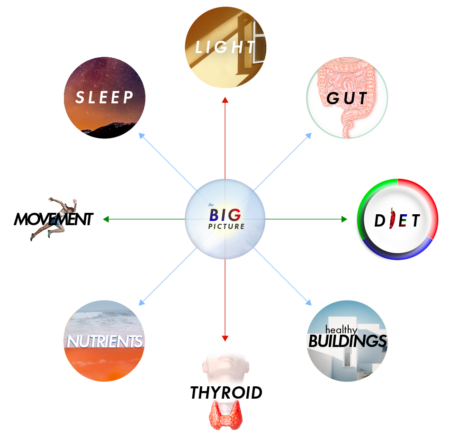
How to Think About Carbs
Carbohydrates are a biological necessity — for nearly everyone.
There are three types of carbohydrates.
- Sugars
- Starch
- Fiber
As we’ll see, each affects the body (and the gut) in very different ways.
Now, carbohydrates are the subject of decades of research — and marketing. Telling people which carbs to eat, and avoid, is big, big business.
What will help you the most? Cut through the data and opinions, and understand these two concepts:
- What happens when a healthy body eats carbohydrates (they’re processed properly and provide energy)
- What happens when a compromised gut microbiome eats carbohydrates (they’re likely to be maldigested and feed pathogens, causing inflammation)
Hyperlinks
Carbohydrates
Understand how each type of carbohydrate affects:
- digestion
- sleep
- mental focus
- metabolic energy
Sugar

Consists of:
Glucose + Fructose
(+ Galactose)
- Fruit sugar
- Milk sugar
- Honey
- Maple syrup
- Table sugar
Starch

Consists of:
Glucose
- Rice
- Bread
- Pasta
- Oatmeal
Fiber

Consists of:
Glucose
- Vegetables
- Whole grains
get Diet or Pillars of Health. What you’ll find inside… Good news! Max: “Some of the best [information] in the world.” “You have changed how I think about what I expect from every health professional I work with. You are a rockstar! Massachussetts, USA Josh: “The material on this website is extremely clear cut.” “I just want to say: Travis Burch has been key to my healing process over the last year, which is getting better and better. United Kingdom “I have been searching the internet for years trying to find solutions for the various health conditions my family and I have been suffering from. Because of that, I would go into various rabbit holes of I formation which would promise ultimate healing by following certain diets and or protocols. I had information and books about GAPS, the Specific Carbohydrate Diet, Paleo, Keto, Medical Medium, Jack Kruse, Ray Peat, prometabolic eating so on. USA “I’ve been on an 8-year long journey of struggling with hypothyroidism and a ton of health issues stemming from that (i.e. chronic fatigue, depression, weak immune system, insomnia, constant sore throats, digestive issues, etc.) I’ve seen tons of different doctors, naturopaths, healers (and spent thousands of dollars) with little to no results. California, USA Diane — “I can personally attest that Travis Burch is the real deal.” “There are seemingly endless numbers of health and nutrition gurus selling protocols, but very very few of them actually possess the qualities needed to heal for a person struggling from ill health or disease. California, USA Thank you so much! Love the content, I’m constantly reading and referring to it! Now I’ve got it for life! ❤️ Australia “I have suffered from chronic digestive issues for decades. I tried so many things and was feeling so lost, just getting worse, never better. Never knew what I should be eating-my health was getting worse and it was taking a toll on my work, my relationships. Working with Travis over the past year has helped me tremendously. He understands what it feels like to feel anxious and confused and so sick of being sick. He is a helping hand in a sea of confusing health information. He has such a level head and takes a reasonable approach to healing (starting with foundations). He really listens. He sends quick, thoughtful replies everytime I write him. He has been there for me when I was really scared or unsure how to proceed. I always feel better after our zooms. He is patient and answers all my questions and never makes me feel dumb no matter how many questions I have. He has saved me a lot of money with his many hacks and product recommendations! If you hire Travis as your health coach he will help you heal, and this may not be overnight, it takes time to undo years of being sick, but he will be there and stick with you as you figure things out, and teach you a lot!” Massachussetts, USA Viveka: “This is the most practical and helpful source…” “Informed by Travis’ extensive personal experience, this is the most practical and helpful source of info on grounding, light, and electromagnetic healing I’ve seen on the web.” USA Bart: “Travis has helped me tremendously…” “With his website and coaching Travis gives a very clear picture about what constitutes health, which he describes perfectly through his pillars of health. As a coach he is highly engaged and responds quickly to all your questions. He has helped me tremendously in dealing with illness and navigating the maze of online self help recommendations and I can’t thank him enough.” Netherlands Mandy: “Extremely patient and really listens.” “Travis Burch is extremely patient and really listens. Alberta, Canada Brooke: “There’s no agenda or bias — only what works.” “Without Travis my health wouldn’t be where it is today. The Pillars of health show EVERYTHING you need to know about health. U.K. Krystie: “Thank you for this wonderful gift!” “I’ve been happy to support your site as your information is extremely comprehensive, and you can see how much effort you’ve put into your research to help others heal. USA Erica: “A life-changing practitioner to work with. “ “I’ve been working with Travis for over a year. I can’t over-emphasize the influence he has had on my life, on my health, and my happiness. I started working with Travis just as I came down with a chronic health condition called gastroparesis (“GP”). I was convinced by the medical community, scientific literature, and the general consensus of anyone who has this condition that I would have it for life, and at the very best be able to manage my symptoms with medication and drastic, permanent dietary changes. USA (free) Articles Explore each page for free. [/wcm_nonmember]
Your Progress — 6%
To keep reading…
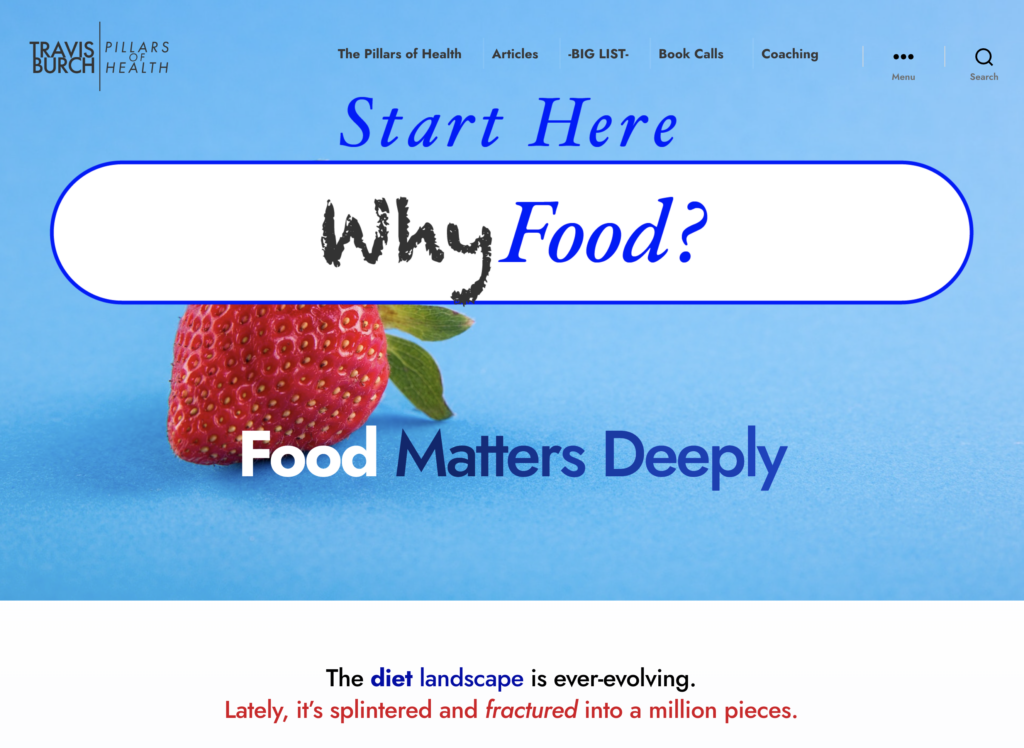




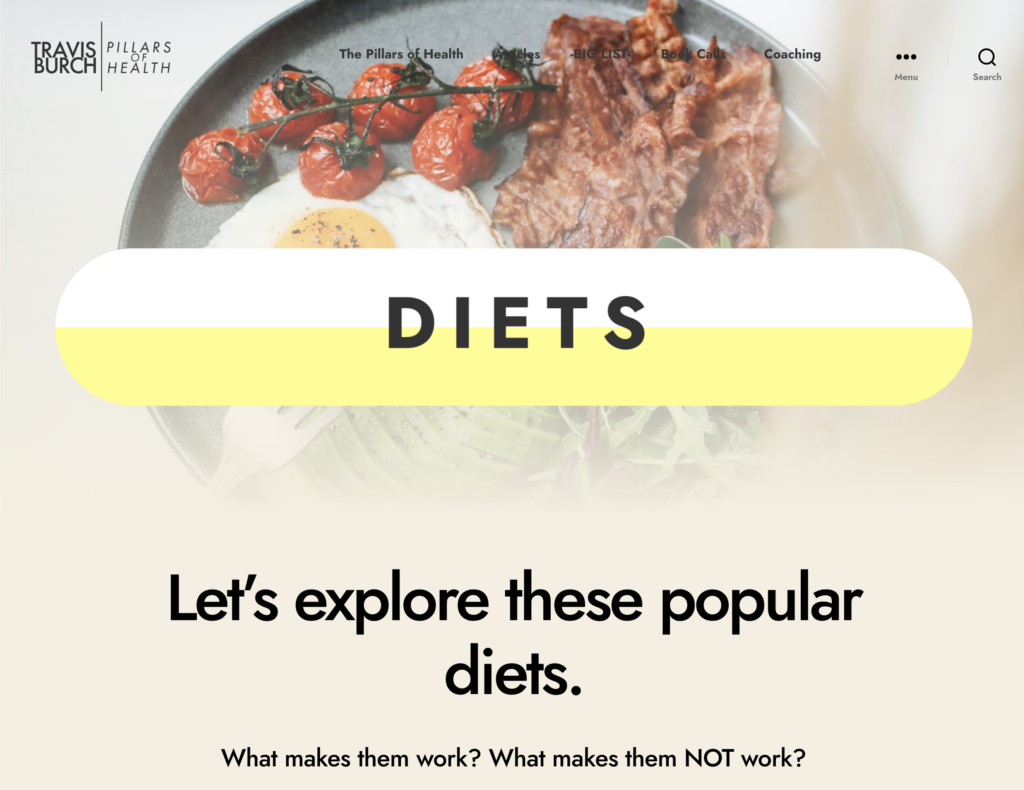

Included in Pillars of Health.
Your purchase of any individual Pillar will count toward your purchase of ALL Pillars later.
the TESTIMONIALS
You are practical, not selling an agenda and so open-minded, which comes through in your writing. It’s so clear how much thought you’ve put into the site, and the content and delivery of content is unparalleled.
You are thorough, but also able to communicate in a way that’s not overwhelming, which I feel is really hard to balance. You’re able to communicate this stuff 100x better than anyone else out there.
I’m often referencing your site in my mind as I’ve been helping my brother work through issues.
I’m so appreciative of you and your work — the mindset you’ve given me is invaluable. You’ve trained and taught me well!”
Max Friedman
Coming from so many different dietary influences, I feel as though Travis has shown me the balance that I needed.
If I could have gone back in time 4 years ago, when I started searching into health, and had access to the knowledge on this website and Travis’ direct support I would have sorted a lot of issues I had out a long time ago and saved my self a lot of tim.
The material on this website is extremely clear cut, organised and actually very enjoyable and easy to read. Never have I been so interested and excited when looking into health. Everything is actionable and there are a million things I’ve taken from the website to improve so many issues I had (sleep improved greatly, circadian rhythm, energy levels, skin issues have improved, strength in the gym are just a few of many others, oh and also balance, so key). Everything you need to heal is here on this website.
Also working with Travis directly he has been able to troubleshoot a lot of issues and I am always so grateful for the time he takes to help me. He really does put thought and effort into every single response I have from him and honestly just cannot thank him enough.”
Josh Clement
Luna: “I wanted to keep Travis a secret out of fear that his prices would go up a thousand fold, because he is worth that much.”
Every time I would find some new information — or some kind of answers — I would get excited, and I would try to apply the information! But I would also try to make sense of it in the context of all of the other information that I had gathered from the past
One day, while searching through message boards and forums, Travis’s website popped up. The guy seemed to have a handle on all of the information. I was highly impressed and decided to book a free call so I could basically spew all of the information that I had read for the past two years onto him.
From the beginning I was so moved by his kindness and vast knowledge. He was not only familiar with all of the things that I asked him, he was able to explain how that information fit into my particular situation. I had tried to reach out to various people in the past and they all demanded money for the slightest interaction or were incredibly pompous and rude to be asked even a simple question. I had SO many questions to ask him before deciding whether to work with him. I wanted to make sure that he know at least as much as I did about all the things. He was so patient and answered all of my questions without ever sounding annoyed or in a rush to “get” me as a paying client.
More than the actual knowledge that he has (which is vast) about various health theories and perspectives, it was his presence that was most healing. Just having someone whom I could bounce ideas off of and who would knew where I was coming from was so reassuring. I felt like I was literally juggling the whole internet’s worth of information by myself with no way to figure out which way to go or what to take as truth and what to discard and his amazing amount of understanding really helped me traverse it all.
Travis helped me to feel that I wasn’t completely alone trying to heal me and my family’s health. And that feeling was the most healing of all. I am hoping to start working with him again soon. In the meantime he is always willing to answer random questions that pop into my mind.
I wanted to keep Travis a secret out of fear that his prices would go up a thousand fold, because he is worth that much. But I know what it’s like to suffer alone trying to find answers in an endless sea of information. I believe that he can help many people. Thank you Travis! You have really been a God-send.”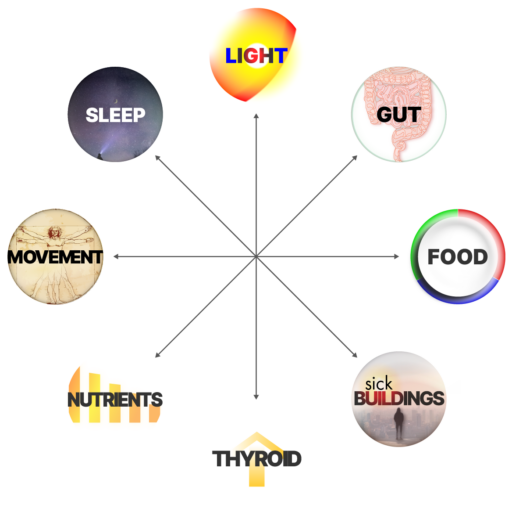
Luna Tomy
Jaemin — “Travis has given me my life back.”
In the first few months of working with Travis, my issues started to reverse almost instantly! Within 6-12 months, I felt like I had healed 80-90% of my issues. It was remarkable. And with so much day-to-day support. He’s also very open-minded and non-dogmatic, so he’ll work with you however you want to explore things. Not to mention, he’s also just an incredibly caring and awesome human being. Navigating my health journey has been infinitely more manageable and less overwhelming with Travis by my side.
Travis has given me my life back and I can’t thank him enough for it! And his ideas and perspectives on health feel absolutely foundational to me. Your mileage will vary with any health coach or protocol, as everybody and situation is different, but I’m convinced that Travis’ coaching would be helpful to pretty much everybody. His protocols feel absolutely fundamental to me for better health.”
Jaemin Yi
I can personally attest that Travis Burch is the real deal. I’m forever grateful to have crossed paths with him at a very crucial time during which the collective health of my family had fallen apart as a result of living in a moldy house.
His in-depth understanding of nutrition, lifestyle (and their interactions) and the way in which the environment influences our health (good and bad) is astounding.
But, the best part is that he’s big-hearted and has a faculty for tuning in and listening that effectively sets him apart from others in the field. Thank you, Travis!”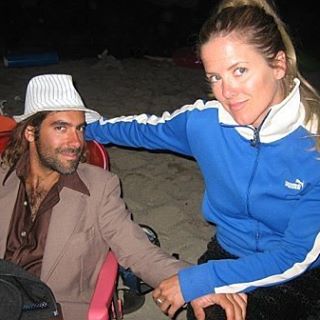
Diane Tantimonaco
Shea — “I’m constantly reading and referring to this.”

Shea Frith
S.M. — “Saved me a lot of money.”

SM, R.D.

Viveka Jagadeesan

Bart Lutmers
He has helped me recently discover some major issues with my regimen and I’m forever grateful!”
Mandy Rode
I honestly can’t put into words how helpful they have been to me. They flipped everything for me — it was the balance I needed in my life.
I find myself going back to this pretty often when needed now! Oh, would it have saved me time having access to this years ago!
Travis himself is different from anyone I’ve spoken to in the health world, I’m constantly blown away every time I speak with him. He will look at every angle of my questions and always give me the light at the end of the tunnel with my problems (Even my more silly questions!)
Travis you are a kind, amazing person: you listen, you are patient, & you want to help. Your understanding of health is essentially on a different planet. From every moving part, you’ve let me explore my issues in my own time and way, with no pressure that might make me feel overwhelmed. You put enormous amounts of effort into every single thing you do. I’m forever grateful for the help you have given me over the years.
There’s no agenda or bias with Travis, only what works, he is the real deal.”
Brooke Collins
Thank you for this wonderful gift!“
Krystie Kyes
I can’t recommend working with him enough. Travis is so methodical, thorough, practical, and an incredible person – which makes him a life-changing practitioner to work with. Thank you for everything Travis, endless appreciation for all that you do!“
(Update by Travis: Erica does not have GP symptoms any longer!)
Erica Mulford
Complete Guide – $29

(click to return to home page)


